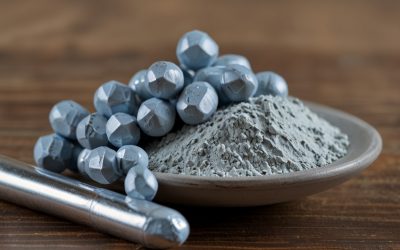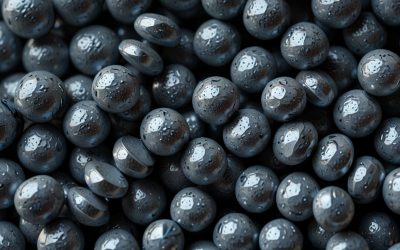In a world teeming with invisible threats, you arm yourself not with weapons, but with antiviral supplements; yet, it’s not always clear which are allies in your quest for immune support. You’ve likely heard the buzz about various vitamins, minerals, and herbal extracts that promise to bolster your body’s defenses, but sifting through the noise to find what truly works can be a daunting task. As a discerning individual committed to your health, you understand that knowledge is your best defense. So, let’s explore the evidence behind these supplements—how they might help, what the science says, and where caution is warranted. After all, when it comes to your immune system, you want to make informed choices, not leave them to chance.
Key Takeaways
- Vitamin C, green tea extract, zinc, quercetin, and elderberry are effective antiviral supplements for immune support.
- Key vitamins for immunity include vitamin C, vitamin D, zinc, vitamin A, and vitamin E.
- Beneficial herbal extracts for immune support include green tea extract (EGCG), quercetin, elderberry, baicalin, and medicinal mushrooms.
- Amino acids and proteins are essential for the structure and function of immune cells, antibody production, and immune signaling. Complementary approaches such as a balanced diet, sleep, and exercise can enhance the effectiveness of antiviral supplements.
Understanding Antiviral Supplements

To bolster your body’s defenses against viral infections, incorporating antiviral supplements such as Vitamin C, Green Tea Extract, and Zinc into your diet can be a strategic component of your immune support regimen. Vitamin C, pivotal for immune function, has been evidenced in randomized controlled trials to reduce the duration and severity of respiratory infections. Its role in cellular functions of both the innate and adaptive immune system is paramount to your body’s immune response to pathogens.
Green Tea Extract, containing epigallocatechin gallate (EGCG), provides significant antiviral activities. EGCG hinders viral attachment and entry into host cells, a critical step for preventing infections. By modulating immune function, it contributes to a fortified defense against respiratory pathogens.
Zinc, an essential mineral, is critical for maintaining a robust immune system. It directly inhibits viral replication and shores up the body’s immune response against viral infections. Supplementation with zinc has been shown to reduce the severity and duration of the common cold when taken within 24 hours of onset.
Beyond these, Quercetin, a flavonoid found in many fruits and vegetables, exhibits antiviral properties. It disrupts the replication mechanisms of influenza A virus and other respiratory pathogens, potentially aiding in the prevention of infections through immune modulation.
Lastly, Elderberry is recognized for its antiviral properties, notably against influenza viruses A and B. It supports respiratory health and enhances the immune system’s response to viral infections.
You, dedicated to aiding others, can rely on these antiviral supplements to enhance immune support and protect the well-being of those you serve. Remember, the efficacy of these interventions is maximized when they complement a balanced diet, adequate sleep, and regular exercise.
Key Vitamins for Immunity
Harnessing the protective powers of key vitamins such as C, D, A, E, and the mineral zinc can substantially enhance your immune system’s ability to ward off viral infections. Vitamin C is essential for anti-viral immune responses, acting as a potent antioxidant that helps protect immune cells from oxidative stress. Regular intake of vitamin C supplements has been shown to support immune function and may exert antiviral effects that can mitigate the impact of viruses.
Vitamin D supplementation is crucial for the regulation of the immune system. It reduces the risk of acute respiratory infections and bolsters the defenses of your body by modulating both innate and adaptive immune responses. Low levels of Vitamin D have been associated with increased susceptibility to infection, emphasizing the importance of adequate Vitamin D status for optimal immune health.
Zinc is another vital mineral that plays a crucial role in immune system function. A zinc deficiency can severely impair immune response. Zinc inhibits viral replication and is critical for the production and function of immune cells. Ensuring sufficient zinc intake through diet or supplements can be a key strategy in fortifying your body’s antiviral defenses.
Vitamin A, while often recognized for its role in vision and growth, is also critical for immune function. It enhances the integrity of mucosal barriers, providing a first line of defense against pathogens, and reduces the risk of acute respiratory infections.
Lastly, Vitamin E is essential for the maintenance of humoral and cell-mediated immunity. It supports the activity of natural killer cells and other immune cells, making it a vital component in your arsenal against viral threats. Together, these vitamins and minerals offer a synergistic approach to bolstering your immune system.
Beneficial Herbal Extracts

Exploring the realm of herbal extracts, certain compounds such as Green Tea Extract and Quercetin have emerged as potent allies in enhancing antiviral defenses and supporting respiratory health. These anti-viral herbs and supplements are grounded in both traditional Chinese medicine and contemporary research. Green Tea, specifically its active component EGCG, has been shown to exhibit antiviral activity against a broad range of pathogens and may even bolster natural killer (NK) cells, a critical component of the innate immune response.
Quercetin, another powerful flavonoid, demonstrates anti-viral properties, particularly against influenza A virus, suggesting that supplements containing Quercetin could significantly reduce the impact of respiratory infections.
Elderberry, Baicalin from Scutellaria baicalensis, and Echinacea are also part of the antiviral herbal arsenal. They have been documented to have antiviral potential against influenza viruses and are known to stimulate various immune responses.
Here is a table summarizing the antiviral activity of these extracts:
| Herbal Extract | Antiviral Target | Immune Support Function |
|---|---|---|
| Green Tea Extract (EGCG) | Broad spectrum | Enhances NK cell function |
| Quercetin | Influenza A virus | Reduces respiratory infection impact |
| Elderberry | Influenza A and B viruses | Reduces duration/severity of symptoms |
In the pursuit of immune support, considering the anti-viral properties of these herbal extracts is crucial. They serve not only as interventions but also as preventive measures. For instance, medicinal mushrooms containing beta-glucans have been acknowledged for their role in immune modulation and antiviral activity. When advising on or utilizing antiviral supplements, it’s essential to recognize the value of these natural compounds, which offer a complementary approach to conventional antiviral medications.
Amino Acids and Proteins

Delving into the critical role of amino acids and proteins, we find that these constituents are fundamental to the immune system’s architecture and its functional responses. Amino acids, the building blocks of proteins, are essential for the structure and function of various immune cells. The immune system consists of a network of cells, including white blood cells such as lymphocytes and phagocytes, which rely on proteins to carry out their defensive duties.
Specific amino acids like glutamine and arginine are particularly important for immune cell function and proliferation. Glutamine, for instance, is critical for the activity of natural killer cells, a type of white blood cell that targets infected or malignant cells. Arginine supplementation is noted to enhance immune responses and supports the immune system by promoting T-cell function and cytokine production.
Since the body cannot synthesize essential amino acids, it’s vital that you obtain them through your diet. Protein-rich foods, including lean meats, fish, eggs, and dairy products, provide these nutrients and contribute to maintaining a robust immune system. These foods not only supply the amino acids required for protein synthesis but also often contain other immune-boosting nutrients like zinc and vitamin B6.
Additionally, certain amino acids may exhibit antioxidant properties, further supporting the immune system by protecting cells from oxidative stress, which can otherwise impair immune function. By ensuring adequate protein intake, you’re equipping your immune systems with the necessary tools to combat pathogens effectively, thereby enhancing your body’s natural antiviral defenses.
Role of Minerals in Defense
While amino acids and proteins provide a foundation for immune competency, it’s equally important to consider the role of minerals in bolstering your body’s defenses against viral infections. These nutrients are indispensable components of a well-functioning immune system. As you focus on the well-being of others, understanding and utilizing the power of minerals can enhance the immune support you provide.
Here are four key minerals that play a vital role in immune defense:
- Zinc: This mineral is a cornerstone for immune function. Zinc not only aids in the production of immune cells but also acts as an antioxidant and can inhibit viral replication. When you’re deficient in zinc, your immune system’s ability to tackle respiratory infections could be compromised. Including zinc in your supplements can provide a much-needed boost to your immune defenses.
- Copper: Essential for robust immune cell function, copper helps in fighting off infections. A deficiency in copper can increase the risk of falling ill. It’s a mineral that is often overshadowed by the likes of vitamin C and vitamin D but is just as crucial in maintaining immune health.
- Iron: Iron is fundamental for the proliferation and optimal function of immune cells. Being deficient in iron can significantly impair your body’s immune responses. It’s essential to ensure adequate iron levels to maintain a resilient immune system, ready to confront pathogens.
- Selenium: Often underappreciated, selenium’s role in immune response and the pathogenicity of viruses is significant. A deficiency can alter your immune function and hence, incorporating selenium into your regime could fortify your body’s antiviral mechanisms.











